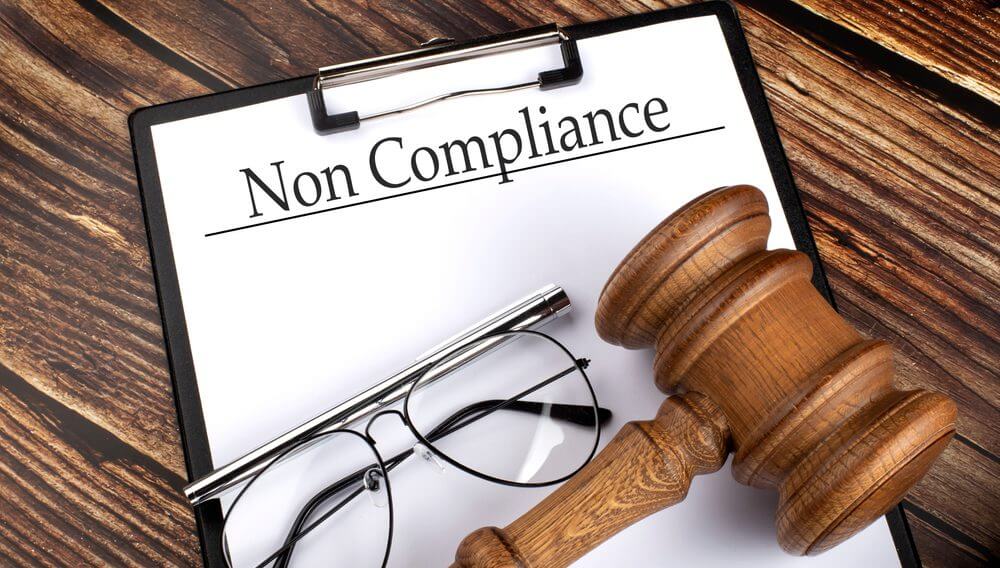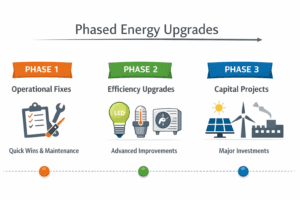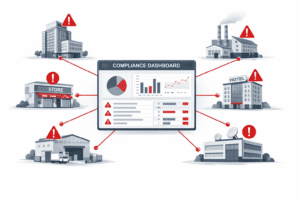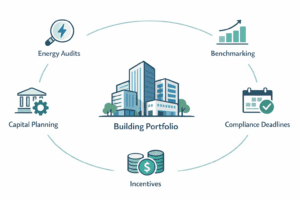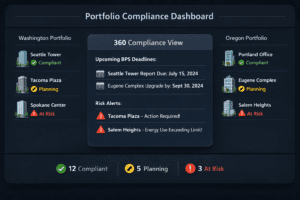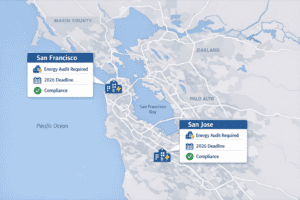I. Introduction
The impending benchmarking laws poised to take effect in 2024 have become a topic of critical importance for businesses across the spectrum. These regulations, centered on mandatory reporting and transparency for a company’s environmental impact, particularly in terms of energy consumption, are changing the operational playbook for countless industries. They reflect a larger societal shift towards sustainability, where environmental consciousness goes hand in hand with corporate responsibility.
The significance of these laws stems not only from the need to address the pressing issue of climate change but also from the repercussions that businesses could face if they fail to comply. These consequences extend far beyond punitive damages; they touch upon the very integrity and viability of businesses in today’s eco-aware market.
In an era where technology and data reign supreme, the business world must grapple with the new paradigm of environmental benchmarking. For those prepared, compliance can forge a path to innovation and leadership. For the unprepared, the landscape of 2024 presents potentially irreversible risks.
II. Understanding the New Benchmarking Laws

With the turn of the calendar page to 2024, the business world will find itself under the microscope of new benchmarking laws. These laws mandate the systematic measurement and public reporting of a business’s energy use and sustainability practices. They are designed to set a clear expectation for businesses: to take responsibility for their environmental footprint and contribute to global efforts to mitigate the effects of climate change.
Industries from technology to transportation, finance to manufacturing, and beyond will be affected by these laws. The sweeping range of sectors included underscores the universal importance that governments and societies are placing on sustainable business practices. These laws propagate the notion that environmental accountability is not a niche concern, but a collective responsibility shared by all players in the marketplace.
The critical aspects of the new laws revolve around the disclosure of energy efficiency, renewable energy use, carbon emissions, and waste management. The purpose behind their implementation is twofold: they aim to pressure businesses to reduce their environmental impact while providing stakeholders with clear, accurate data on which companies are leading or lagging in these efforts.
III. The Implications of Non-Compliance
The ramifications of turning a blind eye to these new laws are far-reaching. First and foremost, businesses that fail to comply may incur hefty fines, which could slice through profit margins and destabilize financial standing. However, the monetary penalties, while significant, do not paint the full picture of the potential fallout.
A business’s reputation can also take a substantial hit. In an era where consumer loyalty is increasingly tied to a company’s environmental creed, the cost of non-compliance can transcend the immediate financial penalties and lead to a long-term decline in customer trust and brand value. This erosion of brand equity can be particularly damaging, as it often leads to a downward spiral of declining sales, shrinking market share, and a tarnished reputation that can take years to rebuild.
IV. Risks and Challenges for Non-Compliant Businesses
Apart from the penalties and the potential damage to reputation, businesses that skirt the new benchmarking laws may find themselves embroiled in costly and reputationally damaging legal disputes. Shareholders, clients, and environmental organizations alike may pursue legal action against companies they perceive to be shirking their environmental responsibilities.
Operations can grind to a halt if non-compliant businesses are forced to undergo audits or adapt their processes to meet legal standards — a process that can be disruptive and prohibitively expensive. These businesses also risk being left behind as competitors who have embraced sustainability practices gain the trust of eco-conscious consumers and thus capture a more substantial market share.
V. Steps to Ensure Compliance
In today’s eco-conscious business climate, compliance with benchmarking laws is tantamount to a company’s survival and success. It’s imperative for organizations to not just meet these laws but to embed them within their corporate DNA. To navigate the complexities of compliance, a strategic, multifaceted approach must be adopted — one that transcends mere adherence and strives for excellence in sustainability.
Developing a Comprehensive Compliance Program
A robust compliance program begins with a thorough assessment of current practices. Businesses must conduct comprehensive energy audits to understand their baseline performance. This involves a detailed analysis of energy consumption patterns, identifying inefficiencies, and benchmarking against industry standards.
Creating a culture of compliance within the organization is essential. This means that from the CEO to the newest recruit, every employee should be aware of the compliance requirements and their role in meeting them. Training programs that educate staff on sustainability issues, the specifics of benchmarking laws, and the relevance of compliance to their job functions are crucial.
Accurate Data Management
Solid data management practices form the backbone of effective compliance. Reliable data gathering ensures that when the time comes to report, businesses can do so with confidence. This means investing in data collection technologies and software that streamline the capture and analysis of relevant environmental data, reducing the risk of human error and increasing efficiency.
Leveraging technology such as energy management systems (EMS) can provide real-time insights into energy usage and help businesses respond swiftly to inefficiencies. Automated reporting tools can also aid in compiling and preparing the necessary documentation to satisfy reporting requirements.
Legal and Expert Consultation

No matter how well-intentioned or informed a business is, the complexities of environmental law often require specialized legal advice. By consulting with attorneys who specialize in environmental compliance, companies can ensure that their programs meet all legal requirements. Legal experts can guide policy development, help interpret the nuances of new legislation, and represent the company in any disputes that may arise.
Environmental consultants, on the other hand, can provide the expertise needed to conduct audits, suggest operational changes, and recommend technologies that align with compliance goals. They bring a wealth of experience from working across industries and can offer innovative solutions that marry compliance with business efficiency.
Investment in Sustainable Practices
Investing in sustainable practices is not only ethical but an increasingly smart business decision. The installation of energy-efficient lighting, HVAC systems, and machinery can lead to significant cost savings over time. Renewable energy sources such as solar or wind can also reduce dependence on fossil fuels and lower carbon footprints.
Furthermore, companies should look beyond their direct operations and consider their supply chain’s sustainability. Ensuring that suppliers adhere to similar environmental standards can mitigate risk and promote a holistic approach to compliance that resonates with consumers and investors.
Continuous Improvement and Transparency
The path to compliance is continuous, not a one-time event. Companies should establish ongoing review and improvement processes to manage their benchmarking programs effectively. This means setting clear, achievable targets for reducing environmental impact and regularly reviewing progress against these goals.
Transparency is also vital; being open about sustainability efforts and challenges helps build stakeholder trust. Publicly sharing progress, even when it falls short, demonstrates a commitment to genuine improvement and accountability. It can also foster collaboration with other businesses, industry groups, and regulators to create a more sustainable future.
By taking these steps, businesses can transform the challenge of compliance into a catalyst for innovation and leadership in sustainability. Compliance then becomes not just about meeting legal obligations but about seizing an opportunity to differentiate and lead in an increasingly eco-aware marketplace.
VI. Conclusion
The impending benchmarking laws in 2024 are not just regulatory hurdles to be cleared; they represent a fundamental shift towards a sustainable business model that values transparency and environmental stewardship. The risks of non-compliance are real and multifaceted, threatening financial penalties, legal challenges, operational disruptions, and irreparable damage to brand integrity.
As the new laws approach, the message is unequivocal: businesses must act now to establish robust compliance strategies. By embracing the principles of environmental accountability and sustainability, companies can not only avoid the pitfalls of non-compliance but also position themselves as forward-thinking leaders in a rapidly evolving corporate landscape. The journey to compliance is a challenging one, but with mindful preparation and dedication to sustainable practices, businesses can navigate the changes ahead and emerge stronger and more resilient than before.
Discover how VertPro.com can elevate your property’s energy efficiency to new heights. We are your ultimate destination for all things related to Commercial Energy Audits, Benchmark Compliance consultancy, and access to our state-of-the-art Construction Marketplace. As trailblazers in the industry, VertPro® empowers Building Owners and Property Managers across the nation with innovative SaaS technology-based solutions. From Energy Benchmarking to Energy Audits/RCx Plus, we’re dedicated to ensuring compliance with over 60 Energy Benchmarking and Energy Efficiency Laws.
Now is the time to seize the opportunity to maximize your property’s energy potential and value. Explore VertPro.com’s comprehensive solutions today and let us be the catalyst for the transformation your property deserves. Your energy-efficient future starts here!


